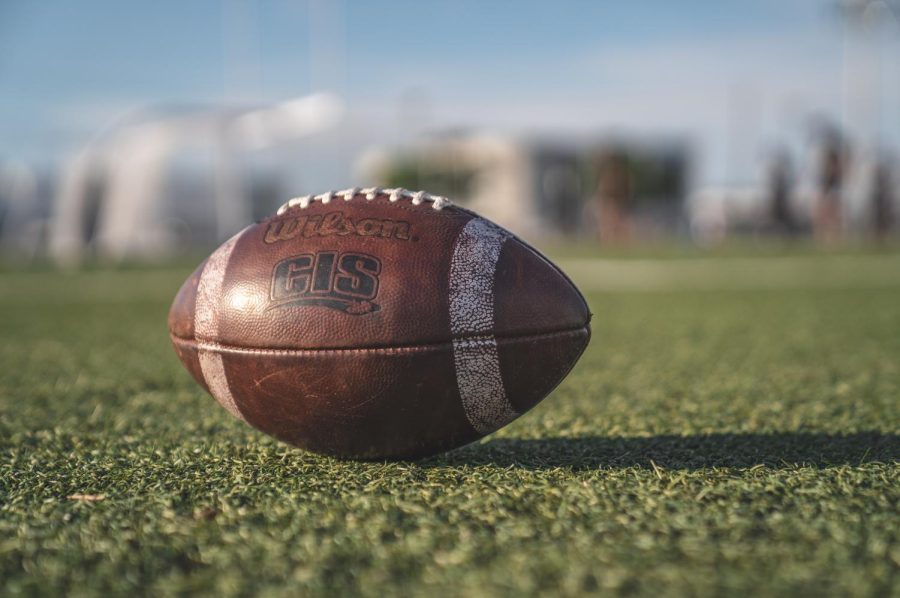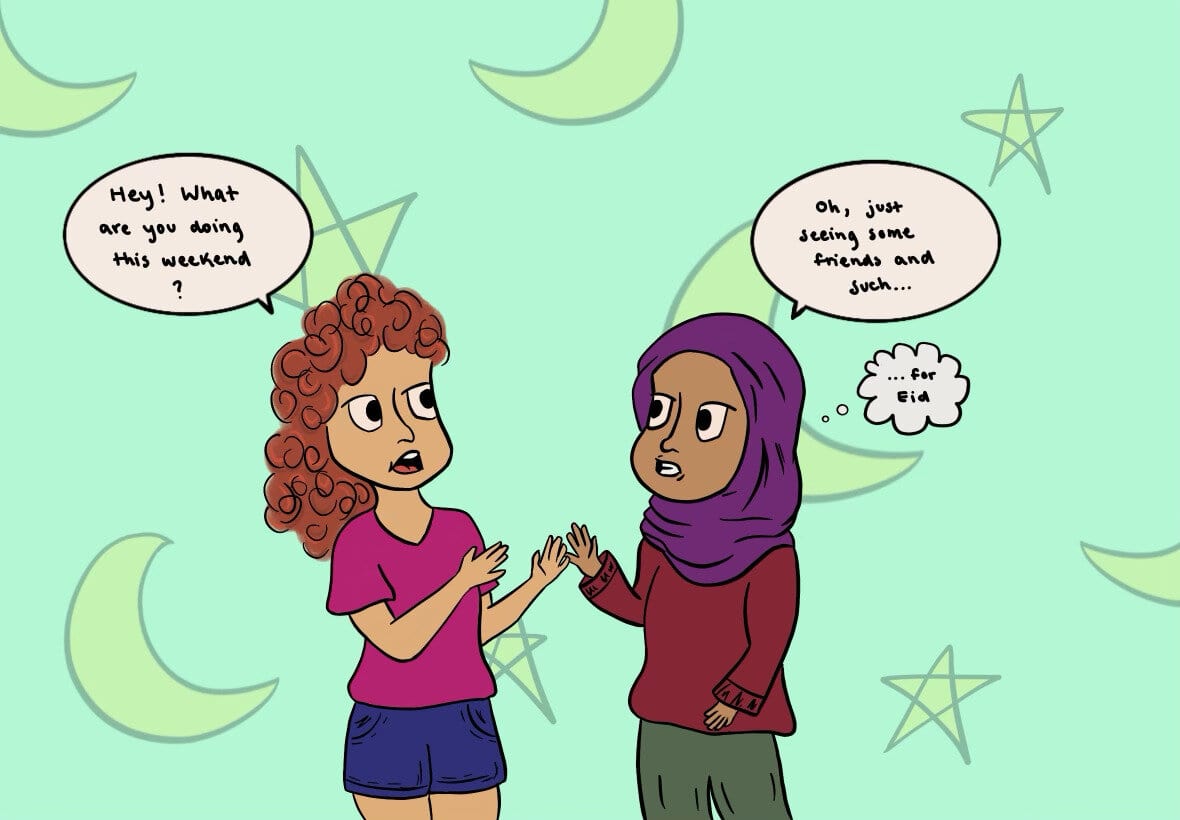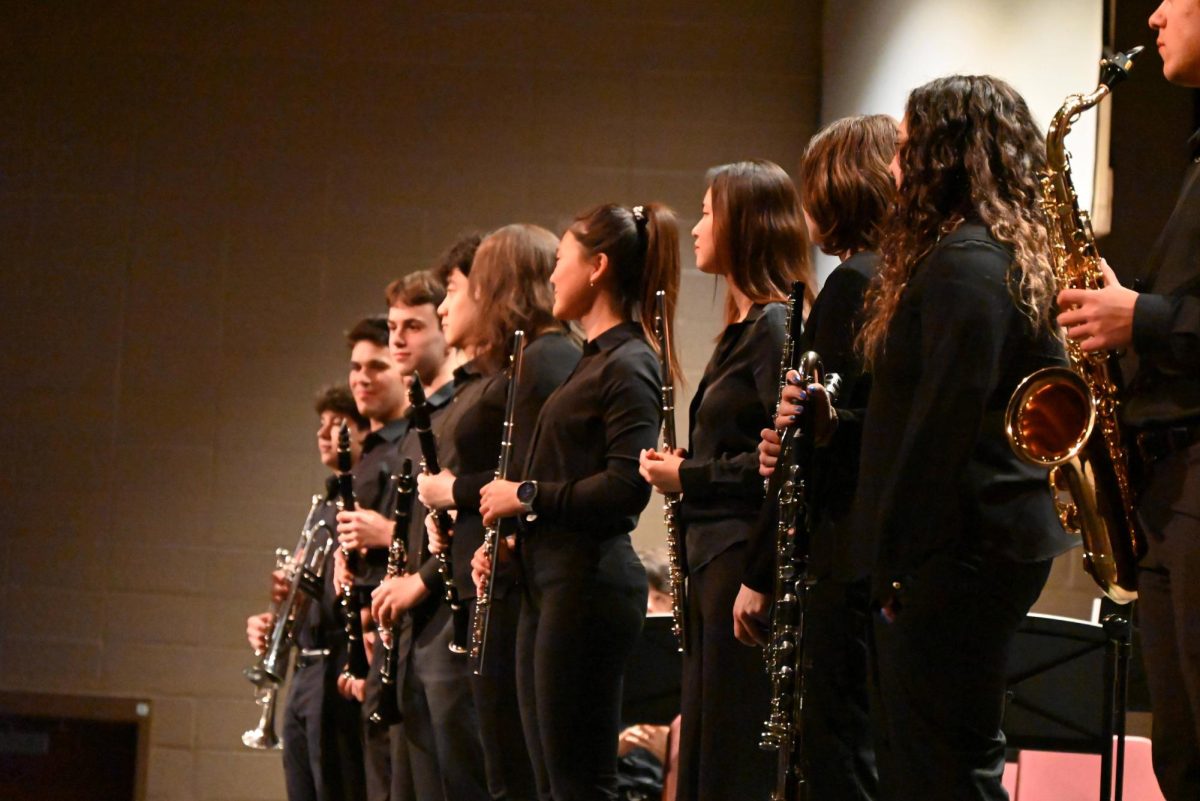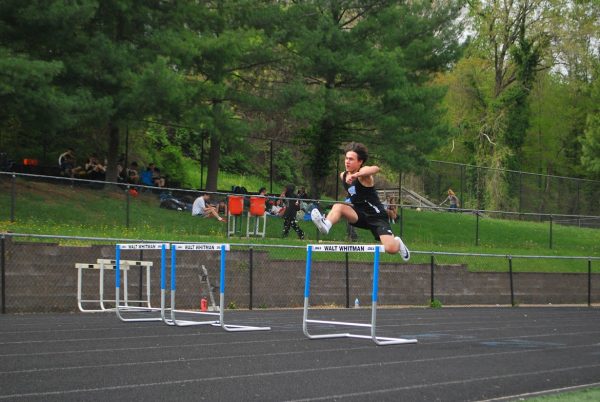“Name five players”: My experience as a female sports fan
For years, lounging on the couch next to my dad to watch my favorite team was a cherished pastime until the seemingly inevitable toxicity of being a female fan in a predominantly male fanbase caught up to me.
June 15, 2023
After finishing my homework and zipping up my backpack, I run to the kitchen, grab my favorite game day snack —chips and a glass of iced tea — and queue up for the Dallas Cowboys game. For years, lounging on the couch next to my dad to watch my favorite team was a cherished pastime until the seemingly inevitable toxicity of being a female fan in a predominantly male fanbase caught up to me.
When I first began watching, my love for the Cowboys didn’t come from my family. Even at a measly five years old, I knew from my dad’s constant distress that rooting for his home team — the New York Jets — would only leave me with years of disappointment. Instead, I turned my attention to my first-grade teacher’s favorite team, the Dallas Cowboys; her nephew was on the team. Soon enough, the blue, white and silver that covered her classroom walls found its way into my life outside the classroom, and my love for the NFL quickly grew beyond just spectating.
I began to help my dad with his fantasy football league on school nights and pace the living room during playoff season. Throughout elementary and middle school, the red and black of the New Jersey Devils earned a place in my wardrobe, with ice hockey taking over a part of my heart just as football had. I continued to watch football and hockey on late nights with my dad, even up until the current season.
After one particularly exhilarating evening of Sunday Night Football, I woke up the next day and donned my Cowboys jersey. I arrived at my desk and reached for my math packet when my classmate spoke up.
“You’re a Cowboys fan?” he laughed, eyes glancing down to the blue and white star on my shirt. “Can you even name five players on the team?”
I stared at him in silence, my face burning. Anger reached me first, swiftly followed by the inexplicable feeling of embarrassment. Did I try to prove myself or tell him to stop? If I didn’t respond, would he go on thinking I’m not a real fan?
I finally built up the courage to respond, explaining that although I can name five players, I choose not to be forced to validate myself.
My valiant stand of defiance, however, fell on deaf ears — the boy had already diverted his attention to a male classmate wearing a New York Giants t-shirt. He asked the kid if he saw the game last night, receiving a vigorous nod.
As they began to talk, my passion for my favorite team quickly withered away. Similar instances of disrespect make it harder to connect and form relationships with my peers based on sports and leave me too ashamed to try to contribute to the conversation.
I make note that the boy never asked his new friend if he could “name five players,” nor did he question his authenticity as a fan. Instead, they built a new friendship based solely on their mutually assumed love of sports.
My experience is only a snapshot of the sexism surrounding sports. When thinking of athletes, sports teams, sports reporters, announcers, stat analyzers and fans, our minds naturally gravitate toward men. Female sports reporters and ESPN anchors face constant criticism and humiliation on social media by toxic male fans, who will dissect anything from the so-called revealing nature of their outfits to their voice or commentary. Women from spectator stands around the globe have reported that they’ve faced some degree of sexual harassment by male fans during a sporting event, whether that be groping or crude innuendoes. Behavior like this only discourages women from finding their place in the world of sports.
The culture in predominantly male sports often creates an unwelcoming environment for female fans, athletes and professionals — no matter how qualified or informed their opinions. Although I’ve watched the Cowboys since childhood, male athletes and fanbases undermine my attempts to love the game to the same extent they do. As a female sports fan, it’s not my job, nor the job of any other female fans, to educate men on a more inclusive line of thinking. Being talked to as though I’m lesser, simply because of my gender, forced me to learn to raise my voice against aggressors in a setting that shouldn’t breed gender discrimination in the first place.
Despite the criticism I have received from male fans, I still love watching the Cowboys on cool fall afternoons with my dad. When asked by a boy if I can name five players, I say “Do you ask everybody that?” Confronted face-to-face with his misogyny, he usually reacts defensively, refusing to acknowledge how his question stereotypes women so blatantly. But I’ve learned that making people uncomfortable about their views is the first sign progress is being made.








